Did someone call “shotgun”? Today’s conscientious commuters know that the sweetest rides sport all-vegan interiors, which means that no cruelly obtained animal-derived materials—like leather or wool—are used for any of the parts, including the seats, steering wheel, and gear stick.
Why Should You Look for a Car With a Vegan Interior?
Gentle cows and sensitive sheep don’t want to be exploited and killed so that their skins and wool can be used to make car interiors. The leather and wool industries aren’t just extremely cruel to living, feeling animals—the production of these materials also contributes to pollution, land devastation, and water contamination. The popularity of electric vehicles shows that consumers are concerned with their environmental footprint—but what’s the point of driving an electric car if it’s made with environmentally destructive materials?
That’s why many car manufacturers like Rivian and Mercedes-Benz are steering in the right direction by using vegan materials, which are kinder to our fellow animals and the planet.
The Vegan Materials Featured in Modern, Sleek Interior Designs
This year’s new car models are fitted with innovative, animal-friendly materials that tread lightly on the environment. Polestar’s models feature WeaveTech—a dirt-and-moisture resistant material inspired by the “sporty look and feel” of wetsuits—and MicroTech, created from renewable vinyl and recycled polyester. Nordico, a material featured in several new Volvo models, is created from recycled materials such as PET bottles. The new Fisker models have vegan interiors made of recycled materials such as old tires, plastic bottles, recovered plastic from the ocean, and old fishing nets. Vescin, a 100% recyclable synthetic leather made of recycled materials, is used in the new generation of MINI models. BMW’s Veganza and Mercedes-Benz’s Artico are also synthetic vegan leathers. Kia plans to phase out the use of animal-based leather and instead use BIO PU (Bio-Polyurethane) derived from natural materials such as corn and eucalyptus.
To make things easier for drivers who want their cars equipped with animal-friendly, sustainable materials, we asked some of the biggest car brands in the U.S. about their available vegan models and editions this year.
Please note that interior options may differ by location. Our survey includes brands that PETA was in communication with—always confirm availability with your local dealer.
Get in the Fast Lane With These New Vegan Interior Car Models
BMW
Standard Vegan Interior
5 Series, Touring
Vegan Leather Used
Veganza
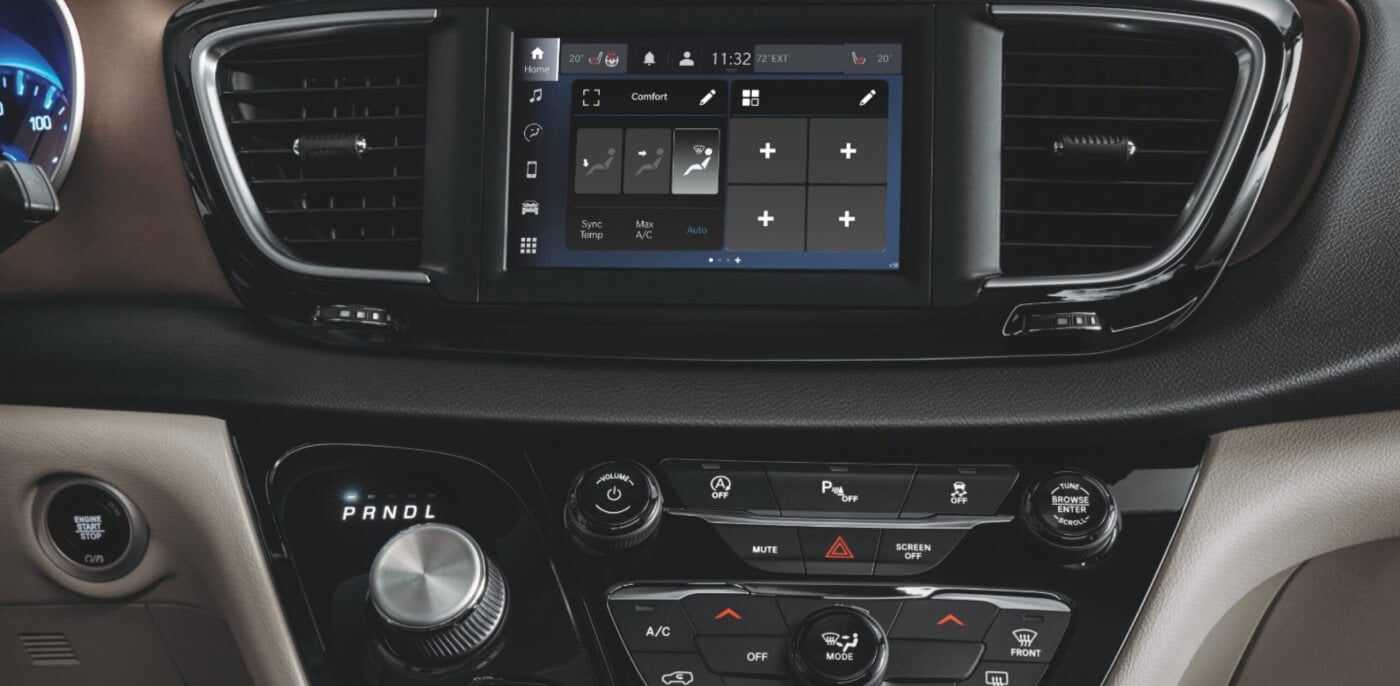
Chrysler
Standard Vegan Interior
Pacifica Touring S, Touring L, and Touring L S
Voyager LX
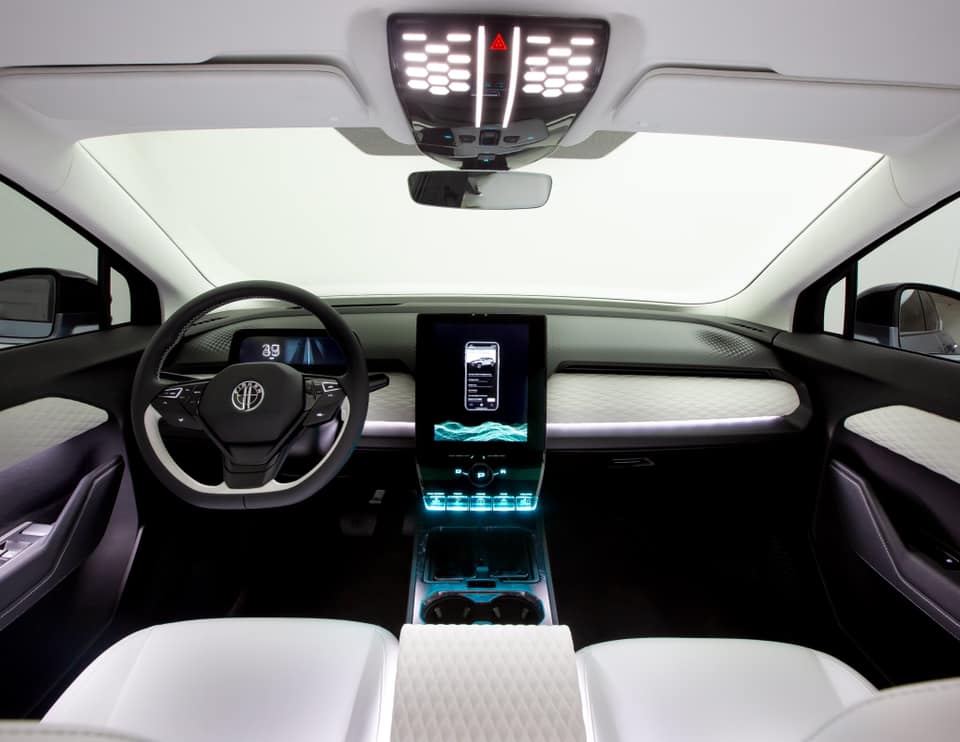
Fisker
Standard Vegan Interior
Alaska, Ocean, Pear, and Rōnin
Vegan Leather Used
Vegan leather made from upcycled materials, including reclaimed fishing nets, T-shirts, and rubber (Fisker Ocean)
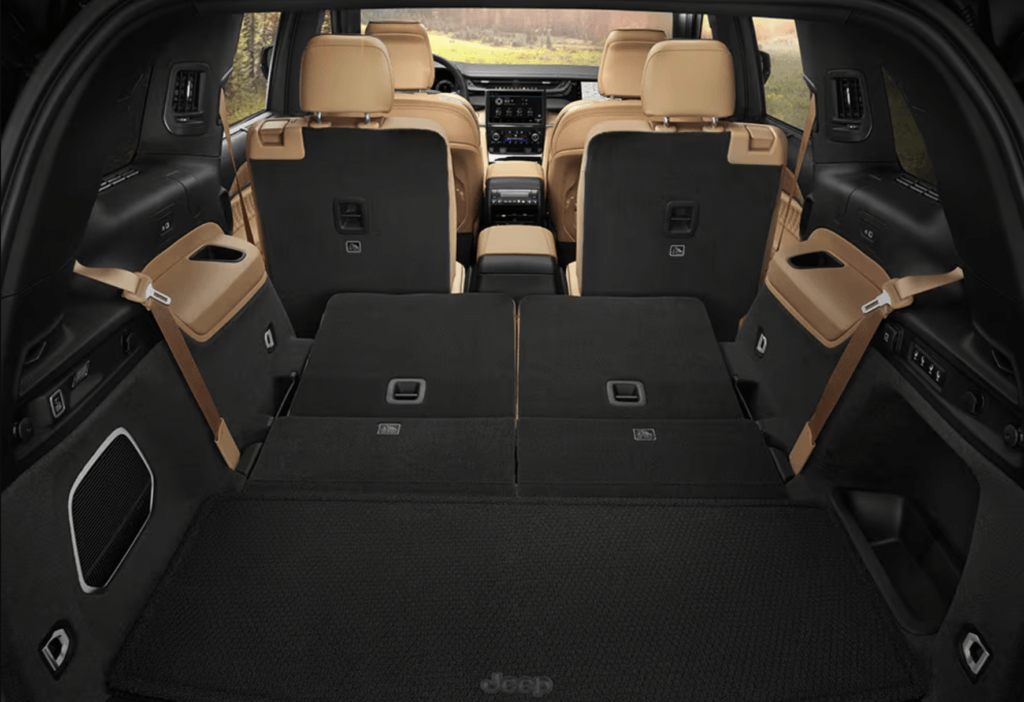
Jeep
Standard Vegan Interior
Compass Sport
Gladiator Base Sport
Grand Cherokee Laredo, Limited, and Altitude
Wagoneer PC0
Wrangler Base Sport
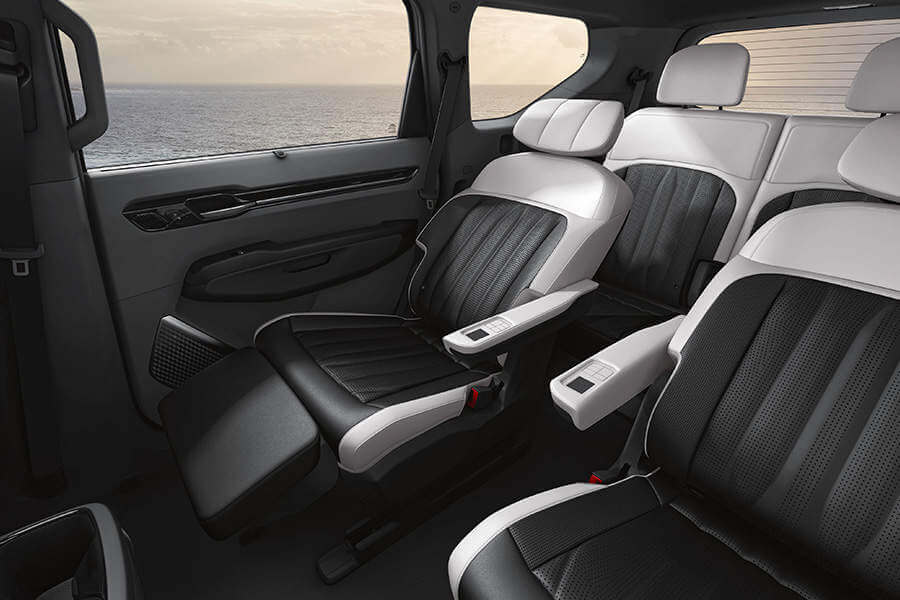
Kia
Standard Vegan Interior
Niro EV, EV3, EV6, and EV9
Vegan Leather Used
Bio-based alternative leather (Niro EV, EV3, EV6, and EV9)
Mercedes-Benz
Standard Vegan Interior
A-Class and B-Class
C-Class (2025 model)
CLA Coupe
CLE Coupe (2025 model)
E-Class Sedan (2025 model)
EQA, EQB, and EQE
GLA SUV and GLB SUV
GLC SUV (2025 model)
GLE SUV (2025 model)
GLS (2025 model)
Vegan Interior Available Upon Request
AMG models
Maybach models
S-Class and G-Class
MINI
Standard Vegan Interior
Aceman
Cooper SE (J01 and J02)
Countryman
Vegan Leather Used
Vescin (MINI Aceman)
Vegan Leather Used
Artico
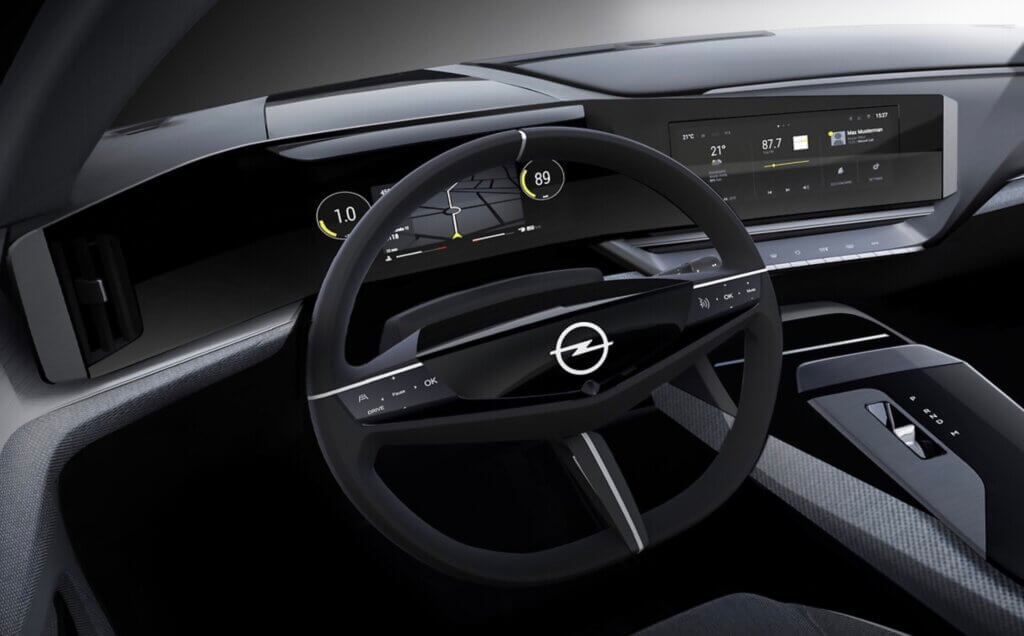
Opel
Standard Vegan Interior
Astra Electric
Astra Sports Tourer Electric
Corsa Electric
Rocks Electric
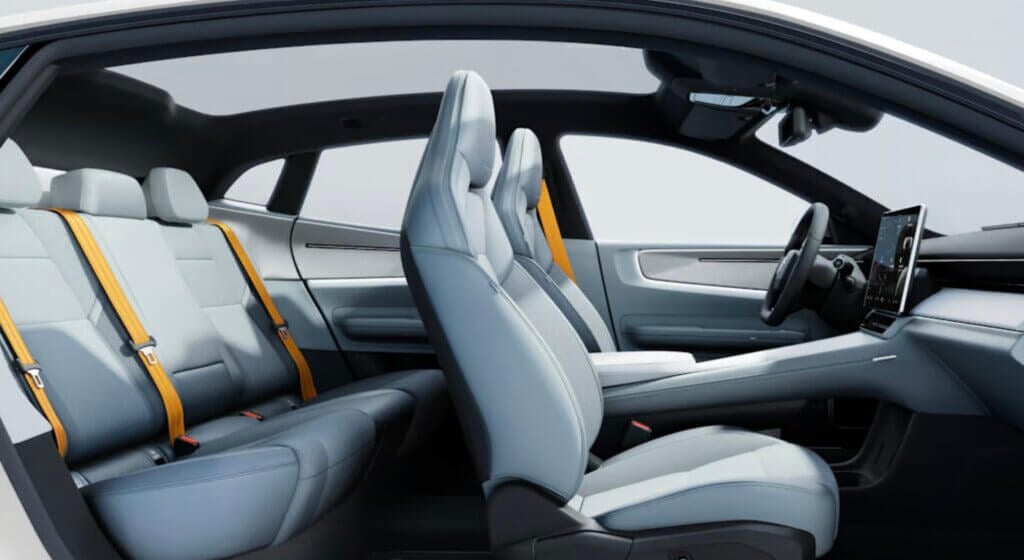
Polestar
Standard Vegan Interior
Polestar 2, Standard
Polestar 3, Standard
Polestar 4, Standard
Vegan Leather Used
WeaveTech (Polestar 2) and MicroTech (Polestar 3 and 4)
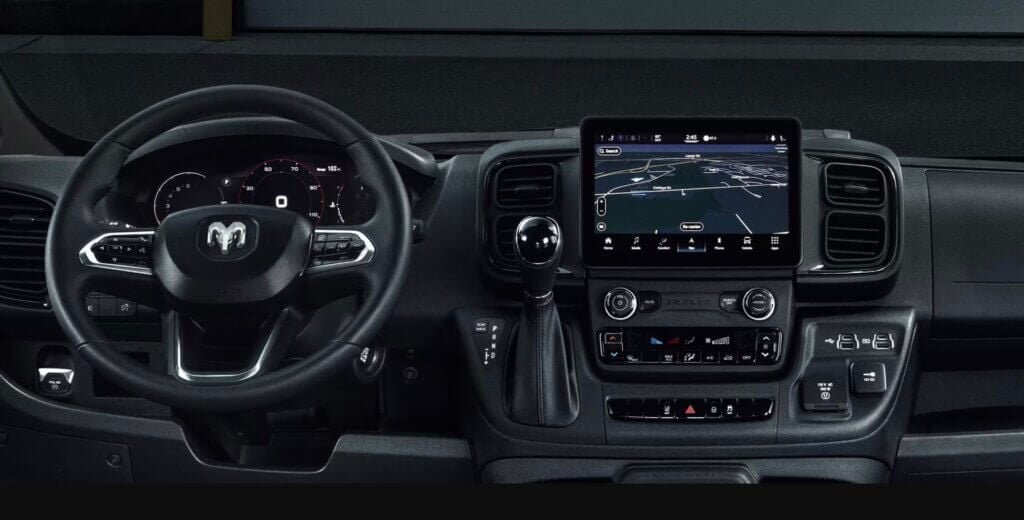
Ram
Standard Vegan Interior
1500 Classic Express, SLT, Tradesman, and Warlock
Heavy Duty Bighorn, SLT, and Tradesman
Light Duty Tradesman and Tradesman HFE
ProMaster Cargo Van
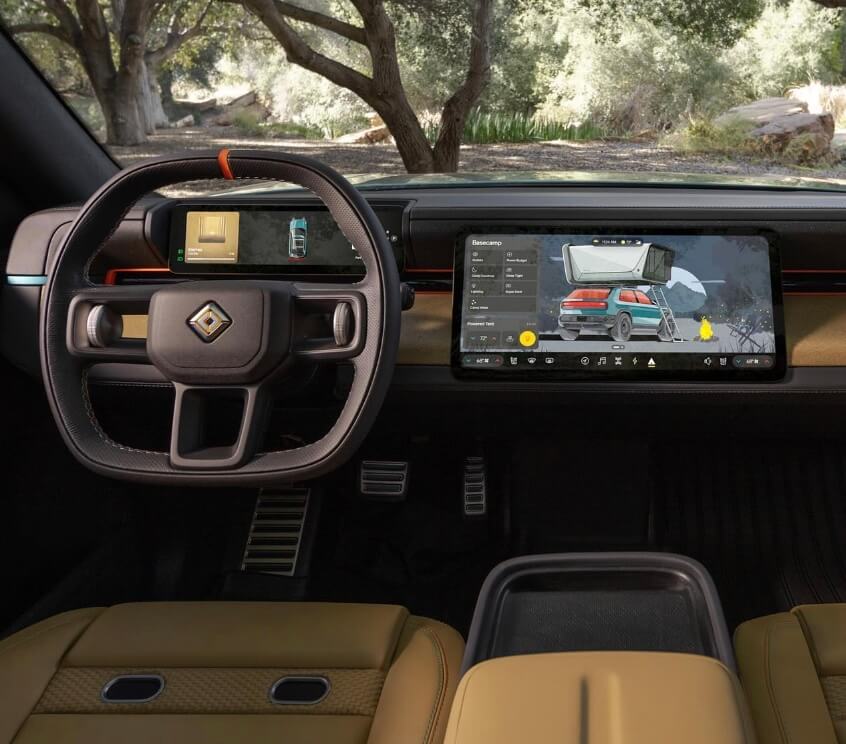
Rivian
Standard Vegan Interior
All models
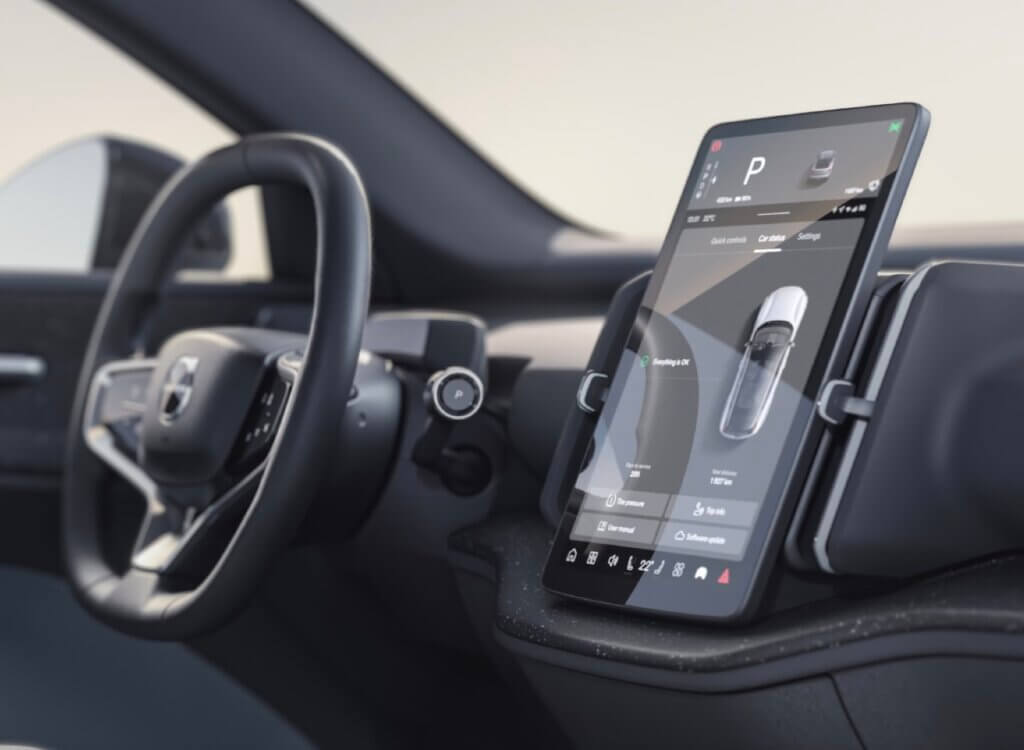
Volvo
Standard Vegan Interior
EC40, Standard
EX30, Standard
EX40, Standard
S60, Standard
What’s Wrong With Leather and Wool?
It’s estimated that every year, 35 million cow hides are used by the automotive industry. A PETA investigation into the largest leather processor in the world revealed that workers branded cows and bulls on the face, electroshocked them, beat them, and slaughtered them—all so their skins could be made into the leather interiors offered by the world’s largest car companies. PETA entities’ investigations into more than 100 wool industry operations across Australia, Europe, North America, and South America exposed that workers systematically beat and mutilate sheep for their wool.
Cows and sheep are social, inquisitive animals who nurture their young and make lasting friendships with other members of their herds. The leather and wool industries cause immense suffering and wreak havoc on the environment—it’s time for all car manufacturers to follow the lead of progressive brands like Rivian by offering only vegan interiors.
Tell Car Companies to Put the Brakes on Cruelty
With new vegan car models dropping every year, it’s clear that the automotive industry is shifting gears toward a more compassionate, sustainable future. You can drive home the message that your support lies with our fellow animals and the environment by choosing vegan materials whenever possible. You can also take action by urging car companies to make every single model sold vegan:
